How to think about 1 million COVID-19 deaths
Processing a grim milestone

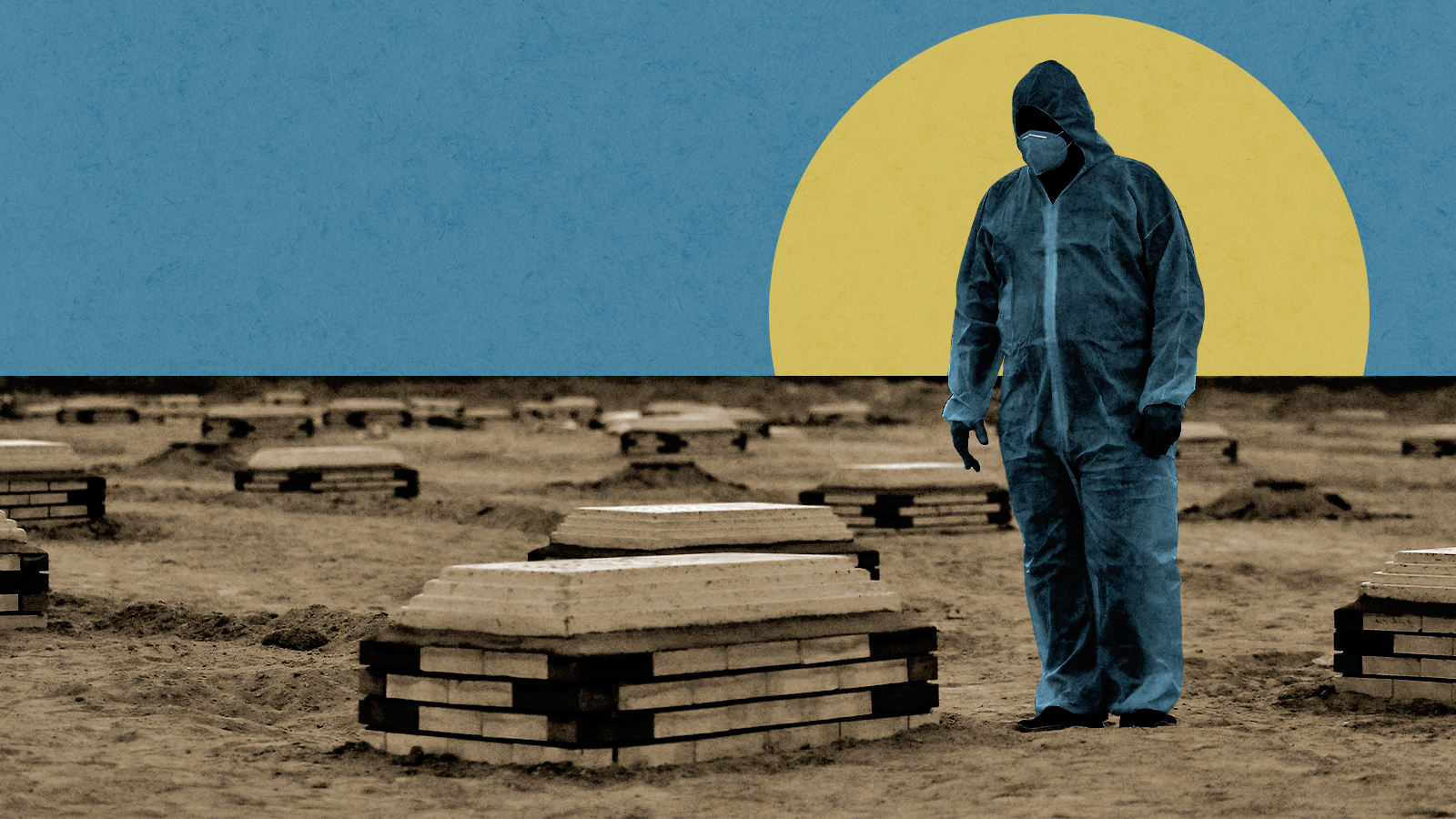
A free daily email with the biggest news stories of the day – and the best features from TheWeek.com
You are now subscribed
Your newsletter sign-up was successful
The U.S. semi-officially marks its 1 millionth COVID-19 death this week, and President Biden ordered flags lowered to half-mast to mark the solemn occasion. In reality, the U.S. almost certainly surpassed a million COVID deaths months ago, with the formal acknowledgment of the stark threshold coming at a time when the coronavirus and its ever-mutating variants are no longer at the center of American life.
Effective vaccines and treatments have robbed COVID-19 of much of its sting. And a growing number of Americans are "done" with the pandemic. So how do we process this grim milestone?
Where does this rank among American tragedies?
When the pandemic hit the U.S. in February 2020, "few of us imagined the overwhelming scope of this tragedy: More than 1 million lives lost, far surpassing the 1918 flu pandemic or even America's deadliest conflict, the Civil War," Dr. Sanjay Gupta said on CNN. And each of those deaths leaves a gap "that may never fully heal."
The Week
Escape your echo chamber. Get the facts behind the news, plus analysis from multiple perspectives.

Sign up for The Week's Free Newsletters
From our morning news briefing to a weekly Good News Newsletter, get the best of The Week delivered directly to your inbox.
From our morning news briefing to a weekly Good News Newsletter, get the best of The Week delivered directly to your inbox.

COVID is now the third-biggest killer in the U.S., behind only heart disease and cancer," and "life expectancy for Americans has fallen over the past two years at the sharpest rate since the double whammy of World War I and the 1918 flu pandemic," The Washington Post reports. "One million is how many people live in San Jose, California, or Austin, Texas, or in Montgomery County, Maryland., or Westchester County, New York. It's more people than live in the six smallest states or D.C., about as many as live in Delaware or Rhode Island."
Who are the dead?
The people who died "fall into clear patterns," the Post reports: "Those killed by COVID were mostly old; disproportionately low income, Black or Hispanic; and overwhelmingly unvaccinated. People who did not get the shot were 53.2 times more likely to die than fully vaccinated and boosted people."
And even as we mourn these 1 million lives, "there is a far larger number that reflects the true impact this virus has had on Americans over the past two years," the Post adds. That figure, called the bereavement multiplier, "is 9 million — the number of Americans who have lost spouses, parents, grandparents, siblings, and children to COVID." About "250,000 children have lost parents or caregivers to COVID-19," The New York Times reports. "Of those, nearly 200,000 have lost one or both parents."
A million COVID deaths means "1 million empty chairs around the dinner table," Biden said in his presidential proclamation. "Each an irreplaceable loss. Each leaving behind a family, a community, and a nation forever changed because of this pandemic." Biden said he knows "the pain of that black hole in your heart. It is unrelenting. But I also know the ones you love are never truly gone. They will always be with you."
A free daily email with the biggest news stories of the day – and the best features from TheWeek.com
Where does the U.S. rank in deaths?
The U.S. is No. 1 in overall recorded deaths, and it isn't even close. Brazil, in second place in this grim race, has about 660,000 confirmed COVID deaths. "Americans have died of COVID at a higher rate than in any other major industrialized country," the Post reports. Per capita, Peru has the most recorded COVID deaths worldwide, while the U.S. ranks 18th, NBC News reports.
Was this level of death expected?
The early forecasts were all over the map. An early influential model from Imperial College London, published March 16, 2020, predicted about 2.2 million COVID deaths in the U.S., but that assumed no kind of coordinated pandemic response. The Centers for Disease Control and Prevention at around the same time estimated that 1.5 Americans would die from COVID-19, though their projections ranged from 200,000 to 1.7 million, the Times reported, depending on the transmissibility and severity of the new virus and what steps, if any, were taken to limit its spread.
What went wrong?
"The casualty count is far higher than what most people could have imagined in the early days of the pandemic, particularly because then-President Donald Trump repeatedly downplayed the virus while in office," calling it a "hoax" then a seasonal bug that would vanish in warmer weather, NBC News recounts. At the same time, "more than half of U.S. COVID deaths have occurred since President Joe Biden was inaugurated in January 2021."
"For me, the big reckoning was the fact that we've not really come to a real national dialogue about what happened after May 1, 2021," when "the White House announced that there are so many COVID vaccines that any American who wants to get vaccinated can get vaccinated," Peter Hotez, dean of the National School of Tropical Medicine at the Baylor College of Medicine, tells Politico. "We lost another 200,000-300,000 Americans after that date," and just about all of those people would be alive if they had gotten vaccinated.
"We were very encouraged by the rapid development of the vaccines, and everybody really thought we were going to vaccinate our way out of this," Dr. Robert Murphy, executive director of Northwestern's Havey Institute for Global Health, tells NBC News. "But then we had people that wouldn't even take the damn vaccine."
"And I think that needs to be front and center," Hotez said. "That these are not accidental deaths. The people who lost their lives and died after May 1 were themselves victims of anti-science aggression," and "the redder the county as measured by Trump voters in the 2020 election, the higher the vaccine refusal and the greater the loss of life." And "everyone's afraid to talk about it because it's very unpleasant to have to point out that these deaths occurred along such a strict partisan divide," he added. "Even the White House won't talk about it in that way."
Steven Ho, an emergency room technician in Los Angeles who quit during the pandemic to try his hand at comedy, said the shifting public health guidelines from the CDC and the fights over masks left the public confused. "We just didn't do a good job," he told NBC News.
Is the pandemic effectively over?
About 350 Americans are still dying from COVID-19 every day, on average, according to Washington Post data. That's down a lot from the deadliest waves of the pandemic, when 3,300 people were dying each day in January 2021, but it's not nothing.
"As a nation, we must not grow numb to such sorrow," Biden said, and "we must remain vigilant against this pandemic and do everything we can to save as many lives as possible, as we have with more testing, vaccines, and treatments than ever before."
Is the worst behind us now at least?
Hopefully, but the virus has raised and dashed expectations before. In March, Biden asked Congress for $22.5 billion in emergency funds to prepare for the next wave of infections and the next pandemic, but Congress cut that down to $10 billion, and Senate Republicans are blocking even that smaller amount.
The "very pared down" $10 billion request is "the bare minimum that we need to get through this fall and winter without large loss of life," White House COVID-19 coordinator Dr. Ashish Jha tells The Associated Press. The White House forecasts that 100 million people could get infected with one of the new variants this fall, and the next generation of vaccines "are going to provide a much, much higher degree of protection against the virus that we will encounter in the fall and winter," Jha said, but only if we get in line in the very near future.
Before we get to the fall, "we're going to have another wave over the summer," and the upcoming dominant BA.2.12.1 strain is "so transmissible, all you need to do is give a dirty look to that subvariant and you become infected," Hotez said. "And we're going to need an ongoing amount of Paxlovid, for instance. I mean, why am I talking to you right now? I'm talking to you right now because I'm the beneficiary of Paxlovid, which I'm on right now, and I'm the beneficiary of having my second booster. And even though it's not ideal to ask Americans to continue to boost, it's still going to be essential."
Peter has worked as a news and culture writer and editor at The Week since the site's launch in 2008. He covers politics, world affairs, religion and cultural currents. His journalism career began as a copy editor at a financial newswire and has included editorial positions at The New York Times Magazine, Facts on File, and Oregon State University.
-
 Switzerland could vote to cap its population
Switzerland could vote to cap its populationUnder the Radar Swiss People’s Party proposes referendum on radical anti-immigration measure to limit residents to 10 million
-
 Political cartoons for February 15
Political cartoons for February 15Cartoons Sunday's political cartoons include political ventriloquism, Europe in the middle, and more
-
 The broken water companies failing England and Wales
The broken water companies failing England and WalesExplainer With rising bills, deteriorating river health and a lack of investment, regulators face an uphill battle to stabilise the industry
-
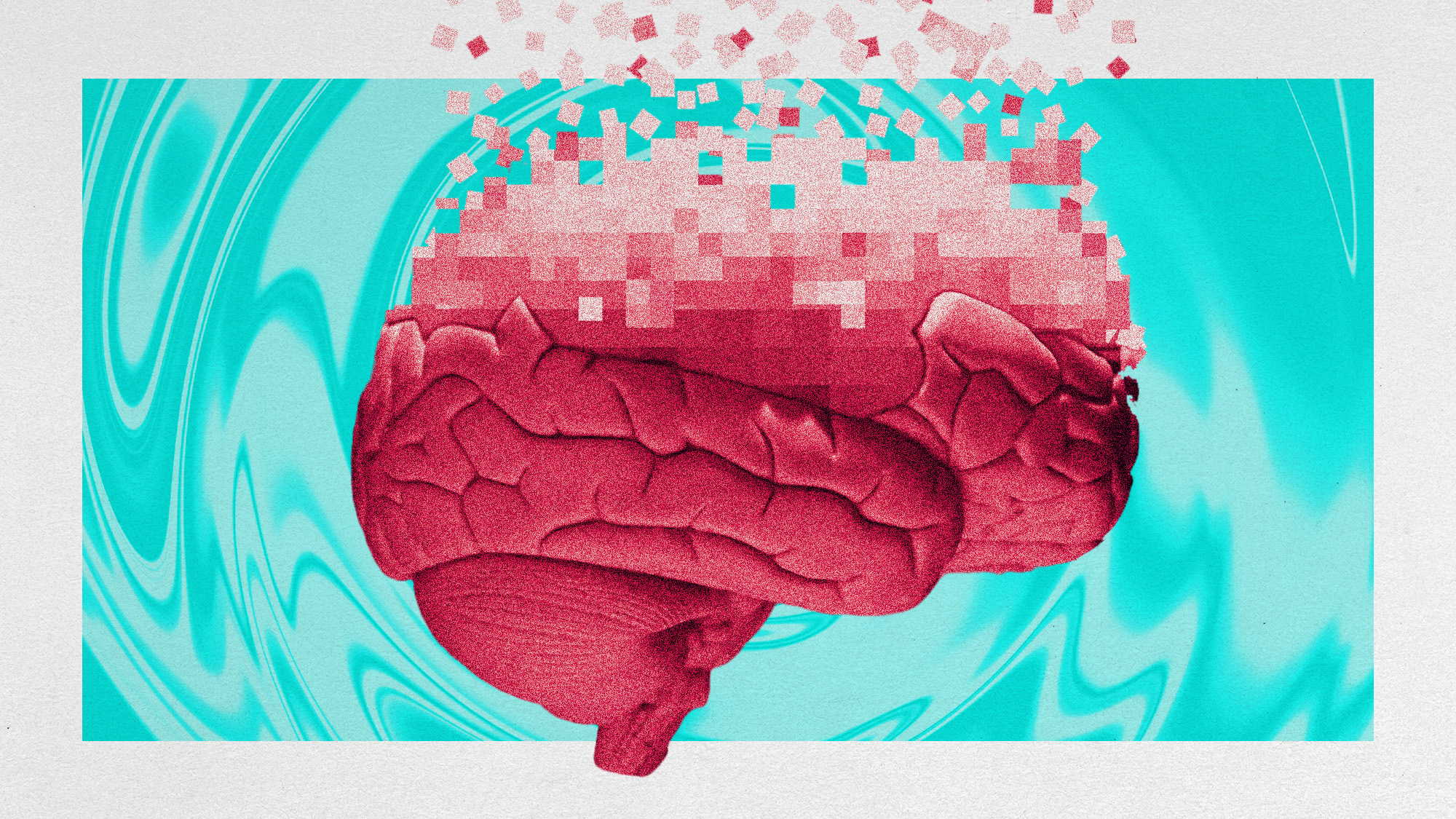 'TikTok brain' may be coming for your kid's attention span
'TikTok brain' may be coming for your kid's attention spanThe Explainer What happens to kids' brains when they binge TikTok's endless stream of bite-sized videos?
-
 The 'girl dinner' TikTok trend has dieticians on edge
The 'girl dinner' TikTok trend has dieticians on edgeSpeed Read Is it a cute and relatable social media fad or a cover for disordered eating?
-
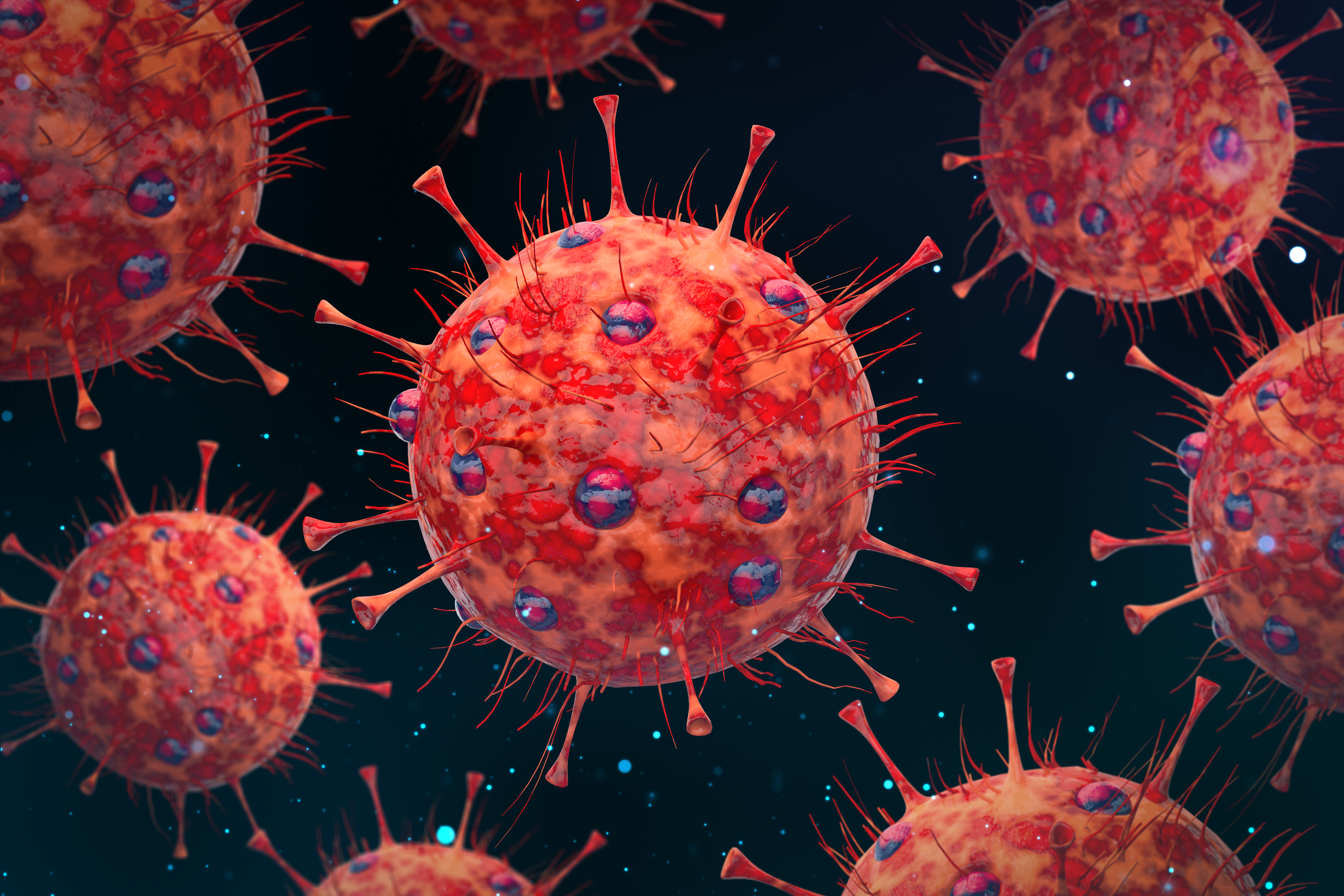 Understanding the new Covid-19 variant, Eris
Understanding the new Covid-19 variant, ErisSpeed Read The formally named EG.5 is making the rounds, but we don't have to worry just yet
-
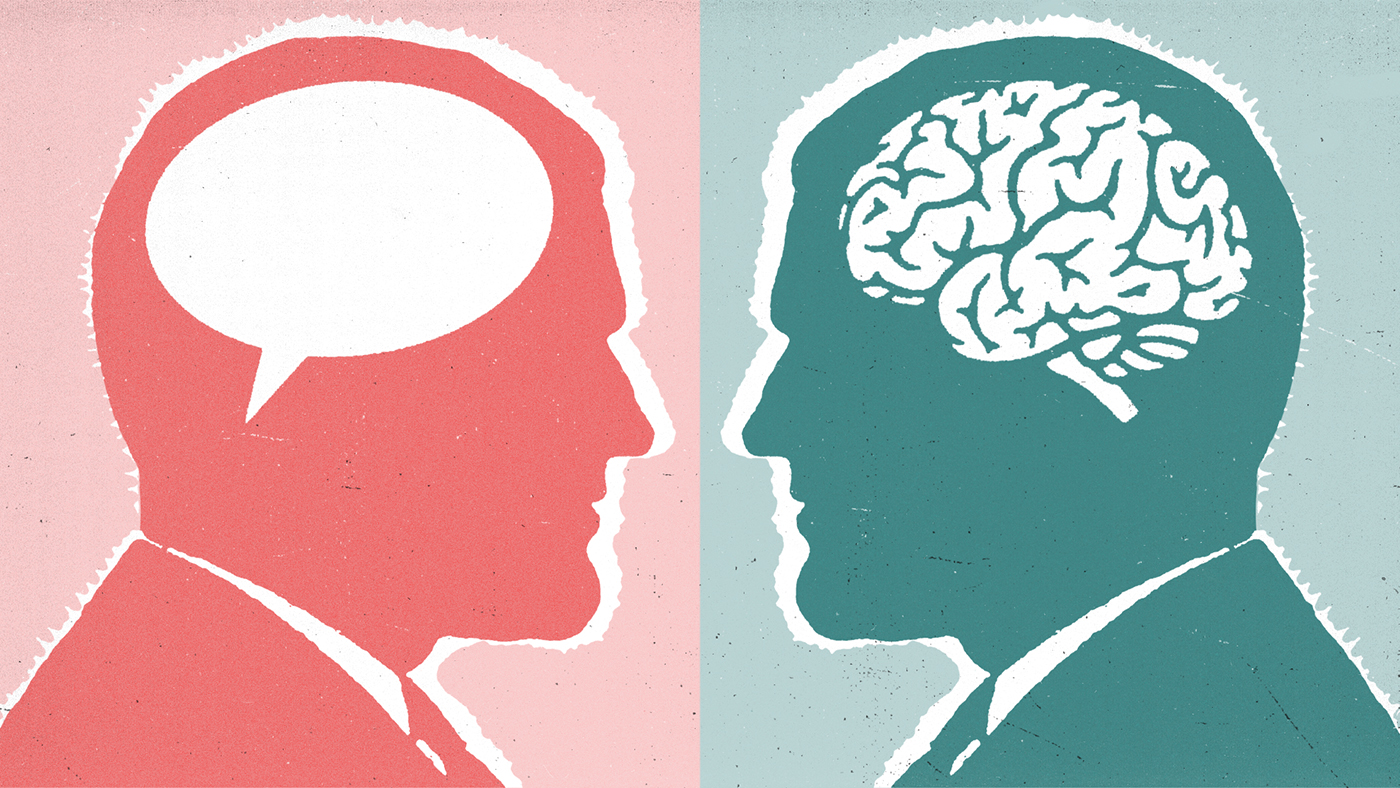 When therapy-speak enters the real world
When therapy-speak enters the real worldSpeed Read Are you "setting boundaries" or avoiding confrontation?
-
 The new push to solve long Covid
The new push to solve long CovidSpeed Read Patients say researchers have been too slow to address the condition
-
 What is cardiac arrest and why does it happen?
What is cardiac arrest and why does it happen?Speed Read The heart condition impacts younger athletes more often than expected
-
 What is medical identity theft and how can you avoid it?
What is medical identity theft and how can you avoid it?The Explainer Scammers can often target medical insurance as part of their grift
-
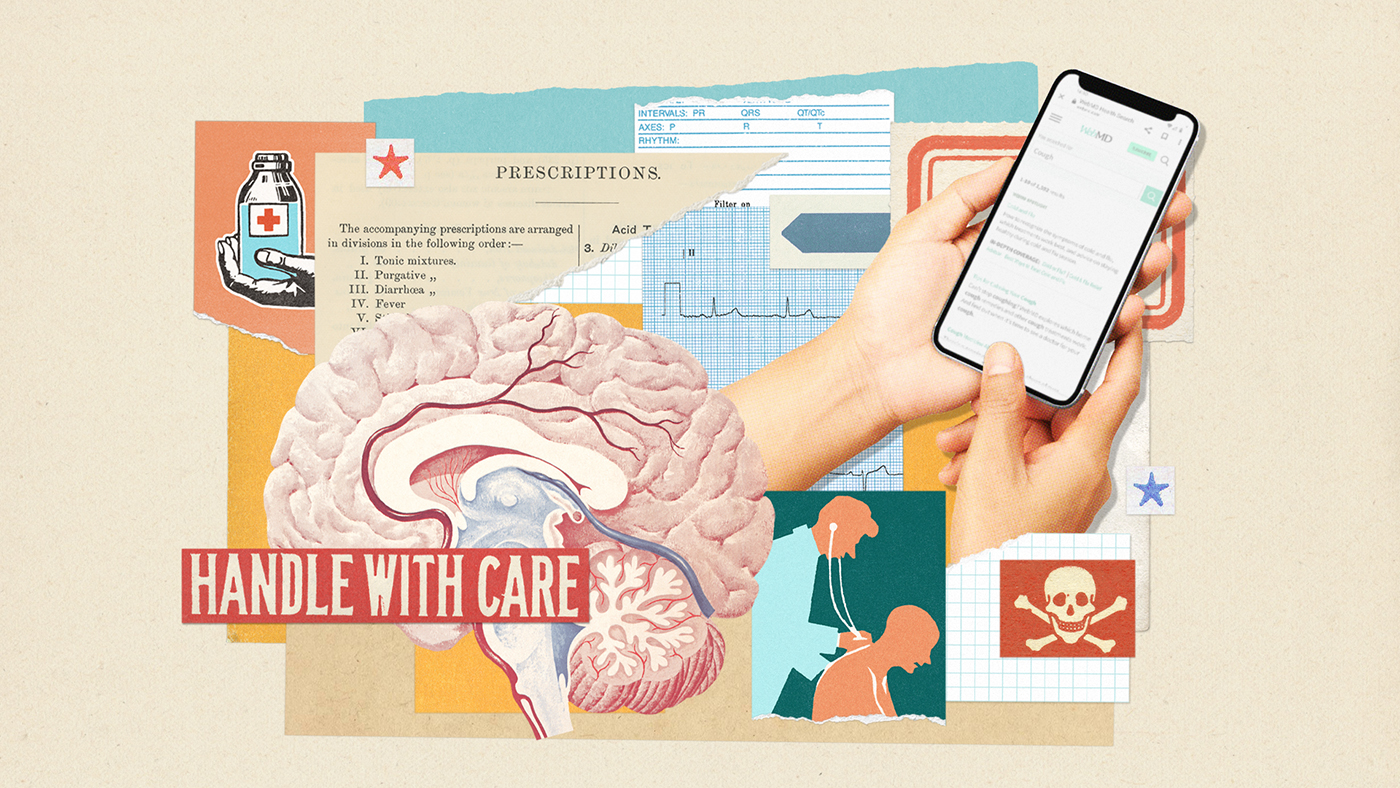 The problem with self-diagnosing
The problem with self-diagnosingSpeed Read Teens are turning to social media to diagnose themselves with mental health conditions
